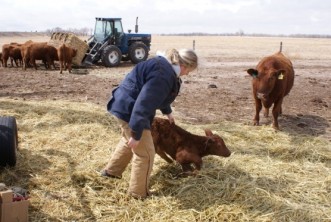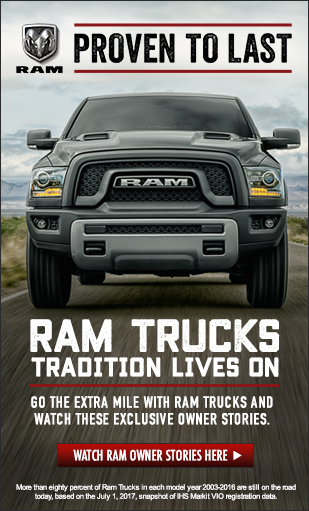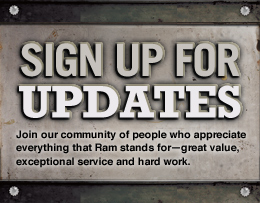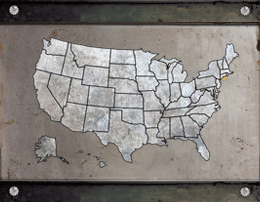Welcome back to RamZone’s Year of the Farmer guest blogger series, in which stories of life on the American farm are offered up by the people most qualified to tell them—American farmers. The goal of the series, of course, is to raise awareness during the Year of the Farmer of the values, ideals and simple pleasures associated with the farming life.
Last month, guest blogger Lisa Steele revealed how her relationship to the family farm—and to country living—has changed over the years. This month, returning blogger Kelsey Pope discusses the modern farmer and his or her ability to adapt to the ever-changing times.
Food: A Farmer Isn’t a Farmer without It
Food—it’s something that we think about, plan for and consume every day. But that simple word—food—has so much behind it.
I love that we have so many movements around food in our American culture today. I love that I can grow my own veggies in my backyard garden or buy them from the grocery store in the winter when we don’t grow vegetables here in Nebraska. I am equally grateful for having the choice to run down to my local grocery store for a gallon of milk or even go to the mega-grocery store to take advantage of sales on larger quantities of food.
Have you ever sat down to a meal and really thought about where that food comes from? Or how it was produced differently today than in years past? When farmers harvest their wheat, corn and soybeans today, I often don’t think of that harvest as food—it is just a raw commodity. When I’m helping calve out heifers, it’s hard to imagine all of the products that we make use of from beef animals besides just beef. Those efficiencies that farmers and ranchers helped developed in our food industry have improved immensely over time.
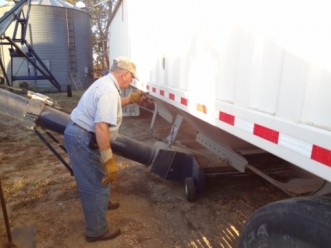 This is easy for me—a beef-raising gal working with corn farmers—to see. Still, there is such a detachment between these farmers and those who consume what they produce. A farmer isn’t a farmer if he has no one to produce food for. The farmer’s diligence in raising and producing food is ever-changing. Today’s farmers don’t just do what his grandfather did. They change with the times, the technology and the discipline to produce the best that they can. To help diminish this detachment from farm to fork, farmers are reaching out more than ever through social media to show their consumers what they do.
This is easy for me—a beef-raising gal working with corn farmers—to see. Still, there is such a detachment between these farmers and those who consume what they produce. A farmer isn’t a farmer if he has no one to produce food for. The farmer’s diligence in raising and producing food is ever-changing. Today’s farmers don’t just do what his grandfather did. They change with the times, the technology and the discipline to produce the best that they can. To help diminish this detachment from farm to fork, farmers are reaching out more than ever through social media to show their consumers what they do.
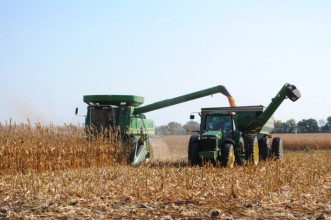 I heard from a farmer, Tim, the other day that the one of the hardest things agriculture faces today is public scrutiny. When I dug deeper into his question of why this was, I found it was because of all of the negative attention that farming gets. Yes, the public likes and trusts a farmer, but they don’t totally understand the methods and practices he or she uses in farming. Buzzwords that consumers hear about farming, such as no-till, subsidies, biotechnology, crop insurance, precision ag and sustainability, can be confusing to those who don’t understand. They hear about these farming practices in the news or from friends, yet many times, they don’t hear from the farmer exactly what these practices do for consumers or how farmers are doing the best they can to produce safe food and other products with the technologies they have.
I heard from a farmer, Tim, the other day that the one of the hardest things agriculture faces today is public scrutiny. When I dug deeper into his question of why this was, I found it was because of all of the negative attention that farming gets. Yes, the public likes and trusts a farmer, but they don’t totally understand the methods and practices he or she uses in farming. Buzzwords that consumers hear about farming, such as no-till, subsidies, biotechnology, crop insurance, precision ag and sustainability, can be confusing to those who don’t understand. They hear about these farming practices in the news or from friends, yet many times, they don’t hear from the farmer exactly what these practices do for consumers or how farmers are doing the best they can to produce safe food and other products with the technologies they have.
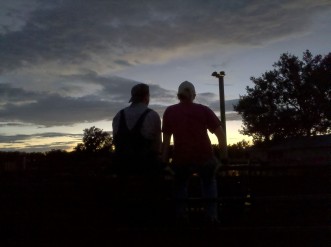 Hard work is something that comes naturally to a farmer. And that hard work pays off when he or she can use new technology in agriculture to produce more with less. Where would we be with a growing world population if farmers didn’t love their jobs enough to care about producing food?
Hard work is something that comes naturally to a farmer. And that hard work pays off when he or she can use new technology in agriculture to produce more with less. Where would we be with a growing world population if farmers didn’t love their jobs enough to care about producing food?
Farmers like Tim and me take pride in the fact that we truly care about producing the best crops and cattle possible. One American farmer today feeds 155 people, compared to 25 in 1960. This is due to farmers’ abilities to adapt, use new technology and do what we love best. And that is the best reward of all.
Read more from Kelsey Pope by visiting her blog Ag on the Forefront.













